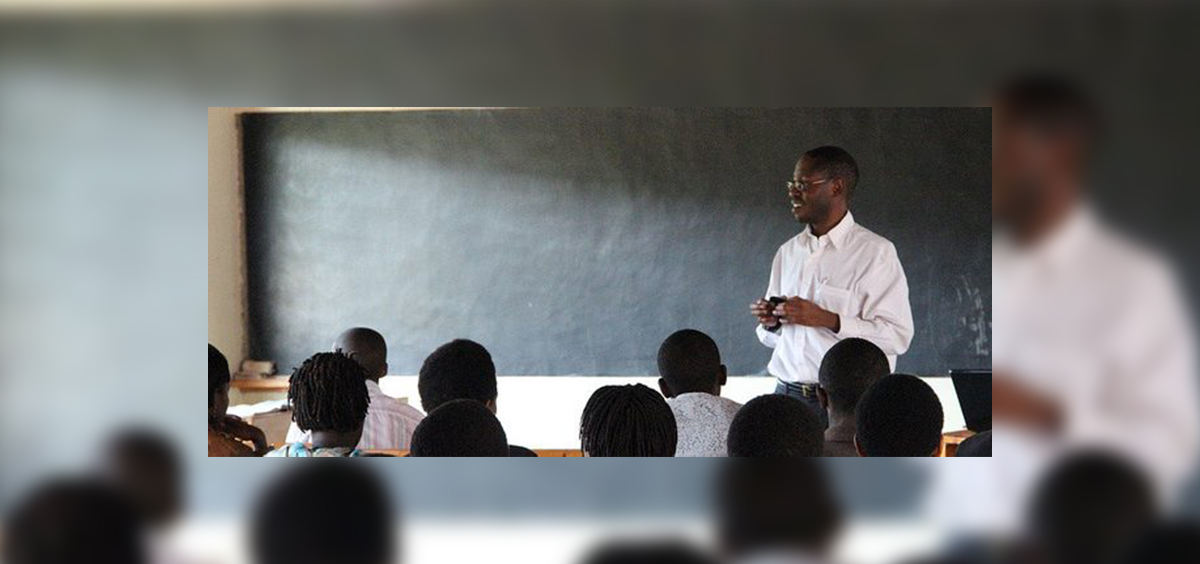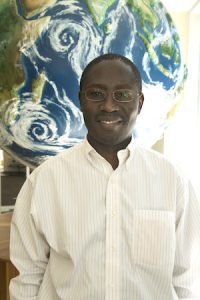News

Second OU Investigation Finds Sexual Harassment By OU Prof
By: Susan Tebben
Posted on:
ATHENS (WOUB) – A second Ohio University investigation has substantiated claims of “unwanted sexual advances” and sexual harassment by hostile environment by a Journalism professor.

In a memorandum of findings obtained by WOUB, investigator G. Antonio Anaya, from the Office of Equity and Civil Rights Compliance, said evidence supports allegations that Dr. Yusuf Kalyango violated university policy by subjecting a student employee to “unwelcome sexual advance or request for sexual favor.”
The investigator also reported evidence that Kalyango engaged in conduct “of a sexual nature…severe enough to substantially interfere with (the woman’s) educational or work performance; or to create an intimidating, hostile, or offensive educational or work environment.”
The student who filed the complaint against Kalyango was an undergraduate student and an employee of Kalyango in the Study of the United States Institute (SUSI).
In the allegations, the student told the OU investigator that she took two trips with Kalyango; one, a study-abroad course which Kalyango co-taught in Zambia and another in which they drove to Washington, D.C.
During the Washington trip, the memorandum states that evidence shows Kalyango “created a situation by which (the woman) had to share a hotel suite with him…”
Evidence showed that Kalyango didn’t tell the woman they would be sharing a room, according to the memorandum.
When asked by investigators, Kalyango denied the allegations, but did not provide any documentation. The woman, however, “produced evidence corroborating that she was in Washington, D.C., at the same time as (Kalyango)” in the form of screenshots containing dates and physical locations.
“(Kalyango) has provided no explanation for these two screenshots,” Anaya wrote in the memorandum.
On the trip to Zambia, which was in 2012, Anaya said Kalyango “attempted to kiss (the woman) and make out with her.” The woman also claimed Kalyango invited the student to his room and danced with her, claims the investigation substantiated.
Another trip, to Santiago, Chile, was scheduled but never happened. In that case, however, Kalyango again invited the student to stay “in a single hotel room with him,” according to the memorandum.
“While this trip never materialized for (the woman), this is evidence of a pattern of behavior on the part of (Kalyango, namely, arranging to spend the night in a single hotel room with one of his female students a significant distance from campus,” the memorandum states.
In concluding the investigation, Anaya wrote that Kalyango has not provided a “reasonable, non-sexual rationale” for requesting that the woman share a hotel room with him.
“Both of these were situations where (Kalyango) was familiar and comfortable but where (the woman) would be significantly dependent upon (Kalyango),” Anaya wrote.
Anaya wrote that the conduct could not be found to be “anything less than severe enough to create a hostile, intimidating or offensive environment.”
Another student on the Zambia trip initially reported suspicions of the professor’s inappropriate behavior to the university but the woman denied the accusations at that time.
According to the memorandum the young woman admitted to denying the accusations because of opportunities the professor “had already made available… and could make available to her in the future.”
Anaya writes that as a “ranking professor” in the undergraduate student’s major, who was a sophomore at the time, Kalyango created a “disparity of power” violating Ohio University Policy that “forbids amorous relationships between a student and anyone having grading, advisory, or supervisory authority over that student.”
Kalyango continues to deny the allegations against him in the investigation. He has also called into question the investigator.
“The biased investigator, Mr. George Antoniyo (sic) Anaya, does not have clear and convincing hard evidence to issue these latest findings, which reverse the 2012 findings that cleared me of these perceptions of discrimination based on gender or sexual harassment by hostile work environment,” Kalyango wrote in a statement to WOUB.
This is the second sexual harassment claim to be substantiated against Kalyango. The first case was also leveled by a former employee of Kalyango’s, who was a graduate student within the School of Journalism, Tess Herman.
Herman also claimed, and a university investigation found evidence, that Kalyango sexually harassed her and provided a hostile work environment for her.
The first case caused Kalyango to be suspended, and he is now awaiting the results of detenuring proceedings.
A civil lawsuit has also been filed against Kalyango in connection with the first case, for which Kalyango has countersued.
In a third investigation by ECRC, claims by a student of retaliation by Kalyango related to Herman’s case were found to be unsubstantiated by evidence.

